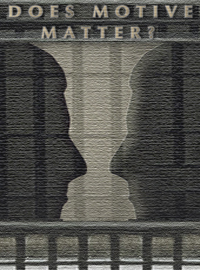| Why We Should Hate “Hate Crimes” |
 |
|
By Quin Hillyer
Thursday, May 10 2012 |
Hate may be a terrible sin, but is it really a crime? A horrible incident in Mobile, Alabama, April 21 earned well-intentioned pleas for it to be investigated as a “hate crime,” as did the now-infamous Trayvon Martin case in Florida and, unfortunately, a growing raft of allegedly race-motivated crimes. No matter whether the perpetrators are white or black, and whether the victims are black or white, these assaults are egregious. They represent the temporary triumph of depravity and barbarity over civilized human decency. With appropriate safeguards to protect those falsely accused, such acts should be punished to the fullest extent of the law. The question, though, is whether the law should treat racial or ethnic or religious or gender-based more harshly than violence inflicted for other motives. Dominant opinion-makers say it should be. But are they wise? A number of good, thoughtful people believe it is the province not of man but of God to adjudge the inner thoughts of others, and that laws should be applied in a neutral manner based on actions alone, not on assessments of the perpetrator’s personal psychology. Let’s examine, therefore, this whole concept of “hate crimes.” The term itself actually refers to two different sorts of actions. The older, far narrower definition of “hate crimes” is aptly described by Wikipedia as “laws defining specific bias-motivated acts as distinct crimes.” These are the sorts of actions where the expression of hatred is itself the crime – specifically because they do not represent constitutionally protected free expression, but instead amount to obvious threats designed to cause extreme fear or terror. Take two examples. First, consider a lone black family living next to a public park in an otherwise white section of town. Now imagine that somebody builds a campfire in that park without a permit, in order to roast marshmallows. Setting the fire would a minor violation, perhaps a misdemeanor. But now imagine that instead of roasting marshmallows, somebody burns a large cross there. Suddenly the same action, setting a controlled fire, takes on ominous, directly threatening meaning. The black family adjoining the park has then been victimized by a hate crime – and the crime should be severely punishable. Likewise, if a teenager scrawls “Johnny loves Mary” in large, garish letters on the side of a synagogue, that’s vandalism – an offense, certainly, but not a major one. But writing graffiti on that same wall would become a hate crime worthy of strong penalties if the graffiti were not a love note but a huge swastika. As well it should be. It is the second form of hate crime, though, that should give us pause. Wikipedia calls them “criminal penalty-enhancement laws.” This is the more commonly enforced version of “hate crime” these days. It means that if a crime was committed as a result of invidious discrimination (based on a racial or other, especially disfavored, motives), then the crime is treated as more heinous, and thus more severely punishable. So if a mixed-race group of 20 people beat up one black and one white person, for example, that’s not a hate crime. But if an all-white mob yelling the “N” word attacks two black people, well, that mugging has “hate crime” written all over it. The question is, why should this be so? If somebody is killed by a mob, he’s just as dead whether the mob acted because he’s black or whether it attacked just because he walked into their neighborhood when they felt like violently marking their turf. A group of homosexual men hitting a random man with sticks is no less culpable than a group of heterosexual men hitting a homosexual with those same sticks – but the latter assault might be charged as a hate crime, and penalized more harshly. This makes no sense. Motive of course matters in terms of whether somebody intended the criminal act with malice aforethought; in other words, striking a blow in self-defense is not usually criminal, whereas striking blows against an innocent person clearly is a major violation. But in the latter case, why should it matter if one struck the unarmed person because of his race rather than because, for instance, one just felt mad at the world right when the victim happened to walk past? Prosecuting something as a hate crime can have perverse effects. Again to quote Wikipedia, “In their book Hate Crimes: Criminal Law and Identity Politics, James B. Jacobs and Kimberly Potter criticize hate crime legislation for exacerbating conflicts between groups. They assert that … the labeling of crimes as ‘hate crimes’ causes groups to feel persecuted by one another, and that this impression of persecution can incite a backlash and thus lead to an actual increase in crime.” Jacobs and Potter are right. The government is an imperfect arbiter of a person’s inner thoughts, and the attempt to punish some thoughts more than actions can lead to tyranny. We should render to God the job of adjudging motives. We humans have enough trouble proving what happened, much less why, and we are poorly equipped to punish what is in a perpetrator’s soul. |
Related Articles : |
























